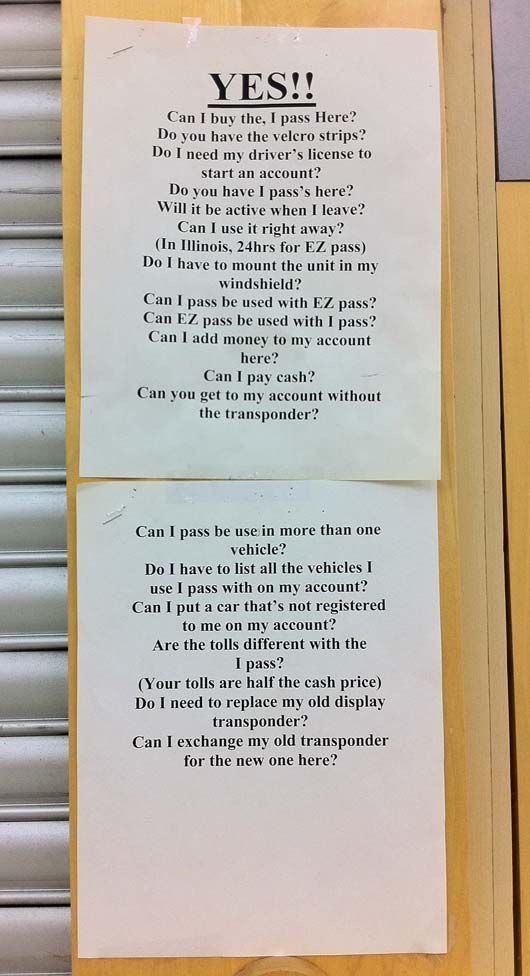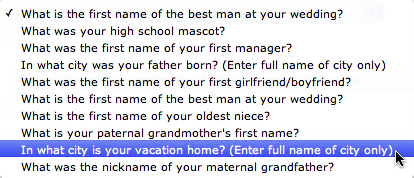If you had asked me to guess, I would have said that 60-70% of REWORK sales came from ebooks. It’s a book targeted towards starters, people eager to jump on new trends and technologies, and our natural sphere of influence is with web people. Surely most would be springing for the Kindle or iBookstore versions, right? Wrong.
 We’ve sold about 170,000 copies of REWORK across all media. Only 16% of those sales came ebooks. That’s only slightly higher than the 11% of buyers who went for the audio book. In other words, about three quarters of sales came from good ol’ hardcover books.
We’ve sold about 170,000 copies of REWORK across all media. Only 16% of those sales came ebooks. That’s only slightly higher than the 11% of buyers who went for the audio book. In other words, about three quarters of sales came from good ol’ hardcover books.
Lately, things have been improving somewhat for the ebooks. Our most recent statement shows that 19% of new sales came from ebooks. So things are changing, but not nearly as fast as I would have guessed.
Perhaps a lot of people are gifting REWORK to others (I’ve heard from many employees handing it to their boss!) and it’s easier to give a physical book than an electronic one. Perhaps people are smitten with the beautiful drawings of Mike Rohde and want them in the beautiful print. Perhaps physical books are just still a great way to read.
I’m sure all fields have terrible reporting, but the shit that’s coming out of the tech world must be eligible for some sort of cake. Taste this slice of delicious nonsense that made the Forbes site today in Salesforce CEO Marc Benioff: We’ve Moved Past The Cloud:
Salesforce.com remains a stock with much upside, according to analysts at RBC Capital Markets, as the company continues to control larger quantities of customer data and leads the way to a post cloud world.
WTF does that mean?! So $CRM, which is trading at 416 P/E, is apparently heading to greater heights because it’ll control more data tomorrow? Control it how? What do you mean control?
They have a hosted software service that they charge a monthly subscription for. Presumably they’re not looking at customer data for a step 1: mining, step 2: ???, step 3: profit scheme?
What is a “post cloud world”? Is Salesforce not going to sell subscriptions to hosted software any more? Are they going to go back to shrink-wrapped software? WHAT’S GOING TO HAPPEN?
This concept uses social media to gain knowledge of internal activities and externally about customers to ultimately help increase customer loyalty and foster interaction between employees and between the company and its customers.
Again, WTF?! I can hardly parse that sentence and even when I do, it makes no sense. I thought journalism was the process of researching and clarifying topics such that mere mortals could understand it.
I’ll tell you what happened. The guy writing this piece had no idea what any of any of this means, so he just selected a paragraph at random and pasted it in. The editors saw “social media” and “customer loyalty” and it made the grade for buzzword bingo.
Let’s end with this one:
Benoiff even told customers to beware of false clouds, making a clear reference to Oracle and its Exadata server.
Benoiff rambling about false clouds and moving beyond the cloud is just Benoiff doing what he does best: Selling buzzword bingo at a markup. It’s hard to fault the man for staying true to that game when it’s served the stock so well for so long.
But the “journalists” at Forbes are supposed to at least make an attempt at processing the nonsense before they regurgitate it. For shame, Forbes, for shame.
Here’s a great little copy bit from the SecondConf website. The headline on the home page says:
“Three-day, Chicago-style, single-track conference”
I can easily imagine a more mundane version:
“Three-day, single-track conference in Chicago”
I don’t know what “Chicago-style” means, but it sure beats the mundane version. It’s more interesting and unique than merely stating that the conference happens in Chicago.
I like stuff like this because I personally struggle with making my writing interesting. It’s hard enough to be clear and get your point across. Being clear and interesting—that’s a goal to shoot for.
I was having lunch today with some editors of a local weekly. After listening to them talk about what they do I realized that we do it too. We’re editors.
They edit articles, we edit software.
We prune it. We clip off the extra features like they clip off the extra words. We trim the interface like they trim a sentence. We chop products in half like they ask for 5000 words instead of 10,000.
The editing process is what makes a great product. Editing the feature list, editing customer requests, editing the interface, editing the code, editing the marketing, editing the copywriting. It’s not about designing or writing or coding, it’s about trimming those weeds back before they ruin the lawn.
So keep that in mind when you write, design, code, or promote. Good editors build great software.
During the NCAA basketball tournament I heard announcer Jim Nantz telling viewers to go to CBSsports.com for “tournament related social media.” A week later I noticed a category at Maria Shriver’s site for “social media.”

Strange thing is I’ve never heard a non-tech person use the phrase “social media.” Normal people mention being friends on Facebook or reading someone’s tweets on Twitter. They don’t say, “I want to get some social media.”
It’s a good reminder of how easy it is to get caught up in industry jargon and how we talk instead of how they (i.e. customers) actually think/talk. The phrase you use internally isn’t necessarily the one you should use with the outside world.
Last summer I was driving back to Chicago from Wisconsin. On the Illinois side there are a couple of rest stops over the tollway. It’s a great place to get some gas, grab some caffeine, and stretch your legs a little before the final 50 miles home.
The rest stop usually has a booth where you can buy a iPass so you don’t need to stop and pay tolls all the time. During the day the booth is manned by someone to help answer any questions you have.
It appears that a lot of the same questions are asked over and over. Enough, in fact, that the dude who answers them is sick of giving the same answer. That answer is “Yes”.
So he jumped on a computer somewhere and put together what I can only describe as one of the smartest formats for an FAQ I’ve ever seen. A single answer on top, and all the questions below. The answer is always YES!! YES, YES. YES!! Then he taped it to the outside of the booth. You can’t miss it.

I thought this was brilliant. I just love it. Yeah, it’s full of passive aggression and spelling errors and formatting problems, but the idea in itself is so refreshing. It’s folk information art.
Inspired by this, we whipped up our own version of a YES! page for Highrise. It was a fun exercise in messaging and design.
Continued…
 We’ve sold about 170,000 copies of REWORK across all media. Only 16% of those sales came ebooks. That’s only slightly higher than the 11% of buyers who went for the audio book. In other words, about three quarters of sales came from good ol’ hardcover books.
We’ve sold about 170,000 copies of REWORK across all media. Only 16% of those sales came ebooks. That’s only slightly higher than the 11% of buyers who went for the audio book. In other words, about three quarters of sales came from good ol’ hardcover books.





